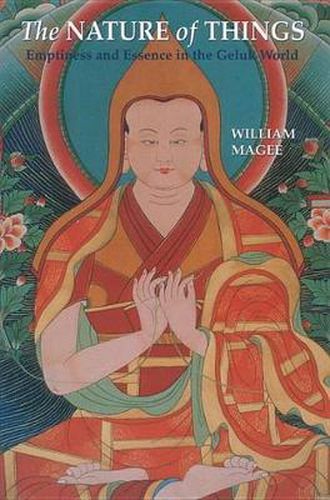Readings Newsletter
Become a Readings Member to make your shopping experience even easier.
Sign in or sign up for free!
You’re not far away from qualifying for FREE standard shipping within Australia
You’ve qualified for FREE standard shipping within Australia
The cart is loading…






Nature is a topic in many Indian and Tibetan philosophical texts, although its meaning varies considerably in both Hindu and Buddhist scriptures. The discussion of nature pursued in this book begins with Nagarjuna (first century), founder of the Middle Way School, who refuted a fabricated nature in his Treatise on the Middle. In that seminal text, he puts forth the three basic criteria for nature- it must be something that is non-fabricated, independent, and immutable. This book presents Dzong-ka-ba’s discussion of the overly narrow object in his Great Exposition and relates that discussion to Nagarjuna’s verses in Treatise on the Middle. When combined with an understanding of an overly broad object to be negated, this topic brings the Middle Way practitioner to a precise identification of the nonexistent object-of-negation nature as being a thing’s establishment by way of its own entity. This book also presents Dzong-ka-ba’s more mainstream commentary on the subject in the Ocean of Reasoning sections, which are translated in Part Two. It also describes Dzong-ka-ba’s strong reaction to the positive and independent nature asserted by T
$9.00 standard shipping within Australia
FREE standard shipping within Australia for orders over $100.00
Express & International shipping calculated at checkout
Nature is a topic in many Indian and Tibetan philosophical texts, although its meaning varies considerably in both Hindu and Buddhist scriptures. The discussion of nature pursued in this book begins with Nagarjuna (first century), founder of the Middle Way School, who refuted a fabricated nature in his Treatise on the Middle. In that seminal text, he puts forth the three basic criteria for nature- it must be something that is non-fabricated, independent, and immutable. This book presents Dzong-ka-ba’s discussion of the overly narrow object in his Great Exposition and relates that discussion to Nagarjuna’s verses in Treatise on the Middle. When combined with an understanding of an overly broad object to be negated, this topic brings the Middle Way practitioner to a precise identification of the nonexistent object-of-negation nature as being a thing’s establishment by way of its own entity. This book also presents Dzong-ka-ba’s more mainstream commentary on the subject in the Ocean of Reasoning sections, which are translated in Part Two. It also describes Dzong-ka-ba’s strong reaction to the positive and independent nature asserted by T